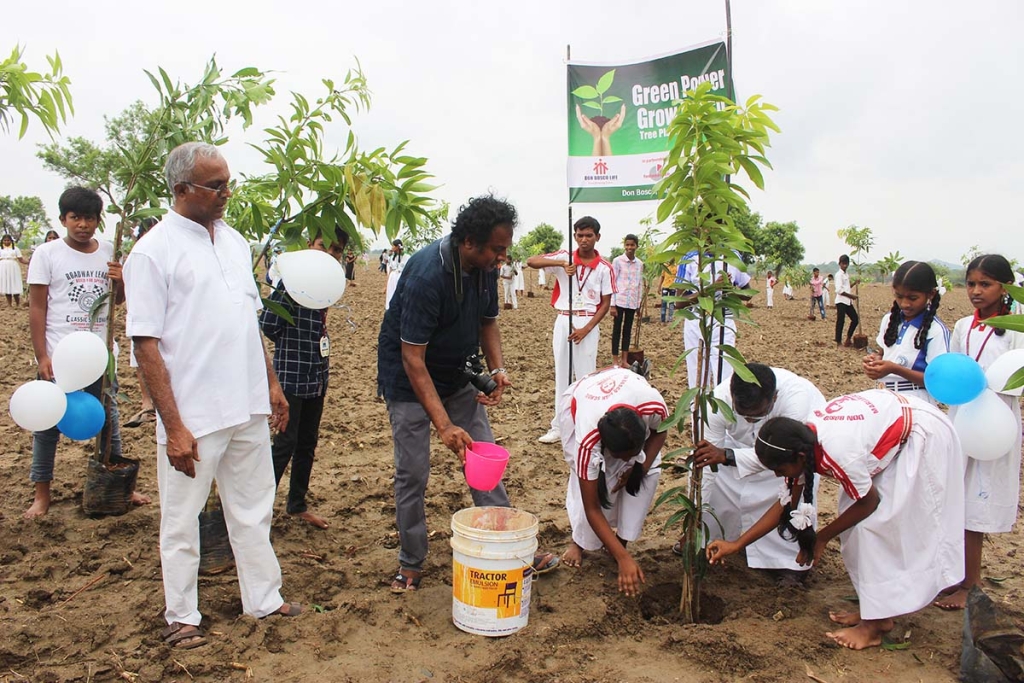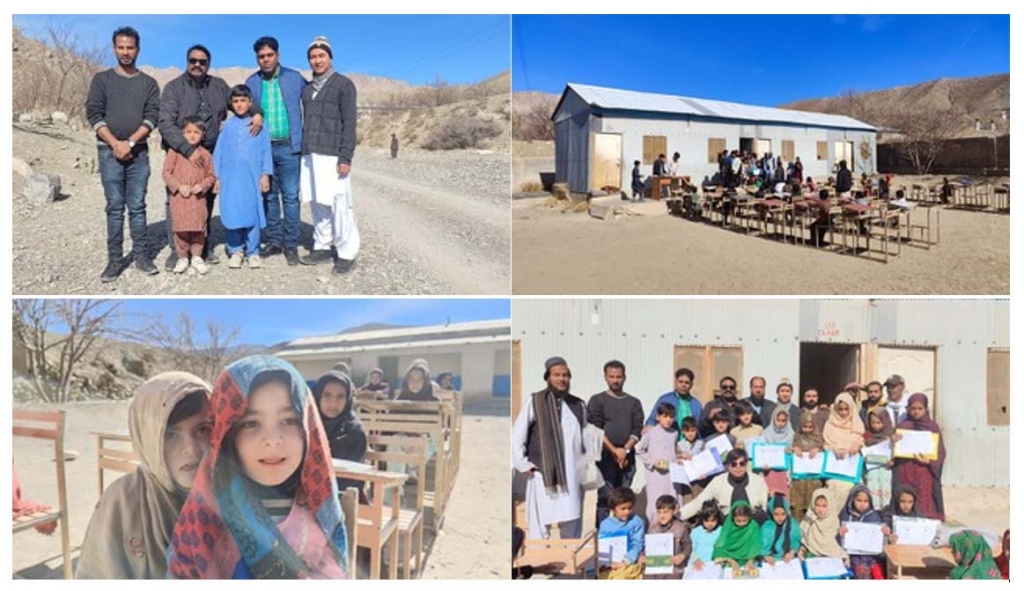INDIA: Students lead tree planting initiative

Salesians focus on greener practices around the globe
(MissionNewswire) Students from Don Bosco School, located in Mariapuram, Warangal, India, have launched a tree planting campaign. The initiative kicked off with a bugle call and a musical band that marched past the area where they were planting the fruit saplings. As they worked, many chanted “Grow Bosco,” the slogan for the event.
Father K. Melchior Raju, the administrator, prepared five acres of land for hundreds of saplings. At the kick-off event, Father M. Vijaya Prakash, principal, empowered the youth to lead the tree planting and highlighted the importance of involving them in this effort to protect the environment.
Addressing the students, Father Noel Maddhichetty, director of Don Bosco Life and missions procurator of the Salesian Province of St. Joseph, Hyderabad, emphasized the need for climate resilience through tree planting. The goal is to plant 100,000 trees in the years ahead to reduce the carbon footprint and ensure a sustainable planet. Salesians are grateful to their partners from Sankt Pölten, Austria, who have been committed in supporting the tree planting programs.
“These initiatives are among many Salesians have launched around the globe with a focus on greener practices,” said Father Timothy Ploch, interim director of Salesian Missions, the U.S. development arm of the Salesians of Don Bosco. “Greener practices help the environment and ensure a better life for the youth we serve as well as teach them the importance of protecting the environment.”
Salesian programs in India are primarily focused on education. Salesian primary and secondary education helps youth prepare for later technical, vocational or university study. Other programs help to support poor youth and their families by meeting the basic needs of shelter, proper nutrition and medical care.
India’s youth face a lack of educational opportunities due to issues of caste, class and gender. Almost 44% of the workforce is illiterate and less than 10% of the working-age population has completed a secondary education. In addition, many secondary school graduates do not have the knowledge and skills to compete in today’s changing job market.
###
Sources:
ANS Photo (usage permissions and guidelines must be requested from ANS)
ANS – India – Green Power – Grow Bosco
Salesian Missions – India
World Bank – India





